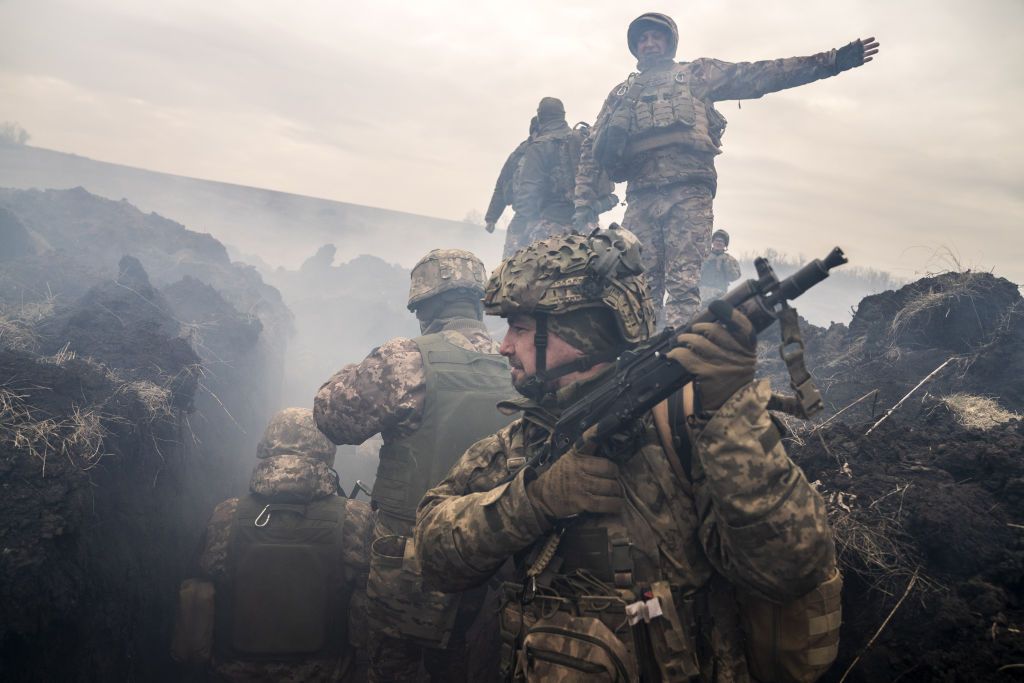Ukraine's parliament, the Verkhovna Rada, passed on April 11 the updated mobilization bill in its second reading, lawmaker Yaroslav Zhelezniak said.
The bill was supported by 283 lawmakers, with 49 MPs from some opposition parties abstaining.
Passing the mobilization bill is a key component of the Ukrainian political and military leadership's efforts to update the legal framework around conscription in order to ramp up mobilization in 2024, in the works since late last year.
After an initial, contentious version of the mobilization bill was withdrawn in January, a new, updated version passed the first reading on Feb. 7. Lawmakers have proposed over 4,000 amendments to the bill since then.
Several key provisions of the earlier draft law were eventually passed by the parliament separately, with President Volodymyr Zelensky signing three laws in early April: on the lowering of the conscription age to 25, the introduction of an electronic register for conscripts, and the canceling of the "partially eligible" status.
The final version of the mobilization bill was approved by the parliament's National Security and Defense Committee on April 9.
Of the provisions remaining in the bill, key points include the right of disabled soldiers and those who have returned from captivity to discharge themselves, and the introduction of mandatory medical commission checks for those who previously held the "partially eligible" status.
Other provisions include penalties for those deemed to be dodging the draft, including the potential revoking of consular services and driver's licenses.
The parliament also voted to remove provisions on demobilization, which previously foresaw soldiers having the right to leave the military after 36 months of service, from the bill so that they could be considered separately.
According to a letter obtained by Ukrainska Pravda and published on April 9, the removal of demobilization from the bill came at the request of Commander-in-Chief of the Armed Forces Oleksandr Syrskyi.
More than two years into Russia's full-scale war against Ukraine, mobilization has become arguably the most contentious domestic issue in the country.
With the war being fought as intensely as ever, Ukraine's military faces a growing need to replenish fighting units, build reserves, and allow existing soldiers to rotate off the front line.
At a press conference in December 2023, Zelensky claimed that the military had requested the mobilization of 450,000-500,000 new conscript soldiers.
Later, Syrskyi said that as a result of an internal audit conducted by the Defense Ministry, that number had been "significantly reduced."














